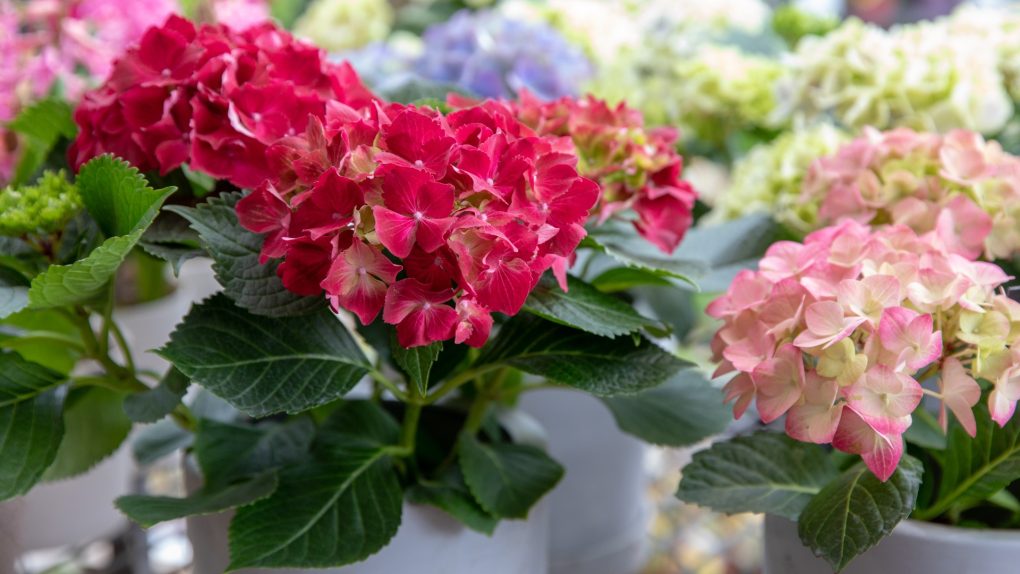Are Hydrangea Poisonous to Humans? Facts and Information
Hydrangeas are considered poisonous to humans. Hydrangeas contain a compound called hydrangin, which is a cyanogenic glycoside. When ingested, it can break down into hydrogen cyanide, a toxic substance that interferes with the body’s ability to use oxygen.

Ingesting hydrangea leaves, flowers, or buds may cause symptoms such as nausea, vomiting, diarrhea, sweating, and dizziness. Cyanide poisoning can lead to difficulty breathing, seizures, and even death in more severe cases. While accidental ingestion might not immediately be fatal, it is essential to contact medical professionals if any part of the plant is consumed.
Table of Contents
Toxicity of Hydrangea
Hydrangeas are beautiful and popular ornamental plants often grown in gardens and used in floral arrangements. However, they are also toxic and can harm humans and animals if ingested.
Effects of Ingesting Hydrangea
If a person or animal ingests hydrangea, it can lead to a range of symptoms, including:
- Dizziness
- Anxiety
- Shortness of breath
- Cramps
- Circulatory problems
- Nausea
- Fatigue
- Loss of appetite
- Depression
- Heightened body temperature
- Heightened heart rate
The severity of the symptoms can vary depending on the amount of hydrangea ingested and the individual’s sensitivity to the plant’s toxins. In severe cases, ingesting hydrangea can be fatal.

Toxic Components of Hydrangea
The toxic components of hydrangea are primarily found in the leaves and flowers of the plant. Hydrangeas contain a compound called amygdalin, which can release cyanide when ingested. Cyanide is a potent poison that can cause serious harm to the body, including damage to the heart, brain, and other vital organs.
It is important to note that all parts of the hydrangea plant are toxic, including the stems and roots. Therefore, care should be taken when handling the plant and kept out of reach of children and pets.
Symptoms of Hydrangea Poisoning
Symptoms in Humans
Hydrangea poisoning in humans can cause a range of symptoms, depending on the amount of plant material ingested. Mild symptoms may include:
- Dizziness
- Anxiety
- Shortness of breath
- Cramps
- Circulatory problems
If a person consumes large amounts of hydrangea, more severe symptoms can occur, such as:
- Severe vomiting and diarrhea
- Abdominal pain
- Dehydration
- Depression
- Coma
Symptoms in Pets and Livestock
Pets and livestock that consume hydrangea plants can also experience a range of symptoms, including:
- Vomiting and diarrhea
- Abdominal pain
- Nausea
- Increased heart rate
- Difficulty breathing
- Loss of appetite
- Fatigue
- Coma

In severe cases, hydrangea poisoning can cause lethargy, depression, confusion, and even death. If you suspect your pet or livestock has ingested hydrangea, seek veterinary attention immediately.
Treatment for Hydrangea Poisoning
First Aid Measures
If a person or pet has ingested hydrangea, it is important to seek medical attention immediately. In the case of accidental ingestion, the following first aid measures can be taken:
- Remove any plant material from the mouth and rinse the mouth with water.
- If the plant was ingested within the last 30 minutes, induce vomiting with the guidance of a medical professional.
- Do not give anything by mouth to a person or pet who is unconscious or having convulsions.
- Seek medical attention right away.
Medical Treatment
The treatment for hydrangea poisoning depends on the severity of the symptoms and the amount of the plant ingested. Treatment options may include:
| Treatment Option | Description |
| Activated Charcoal | Administered to help absorb the toxins in the digestive system. |
| IV Fluids | Administered to help flush the toxins from the body. |
| Medication | Administered to help alleviate symptoms such as nausea and vomiting. |
| Oxygen Therapy | Administered to help with breathing difficulties. |
If you suspect that you or someone you know has ingested hydrangea, seek medical attention immediately. With prompt medical attention, most cases of hydrangea poisoning can be treated successfully.
Prevention of Hydrangea Poisoning
While hydrangeas are beautiful and popular plants, it is important to take precautions to prevent hydrangea poisoning, especially if you have young children or pets.

Here are some tips to help prevent hydrangea poisoning:
- Keep hydrangea plants out of reach of children and pets. Place them in areas where they cannot be easily accessed.
- If you have pets or young children, consider not planting hydrangeas at all.
- If you choose to have hydrangeas, keep the plants at a height that your pet or child cannot reach and be sure to remove any leaves or flowers that fall off the plant.
- Teach children and pets not to touch or eat any part of the hydrangea plant.
- If you suspect that someone has ingested any part of the hydrangea plant, seek medical attention immediately.
